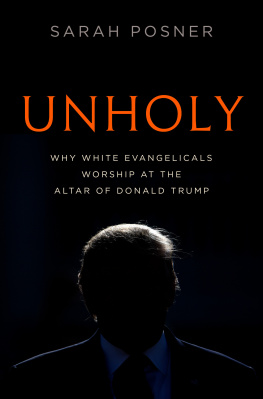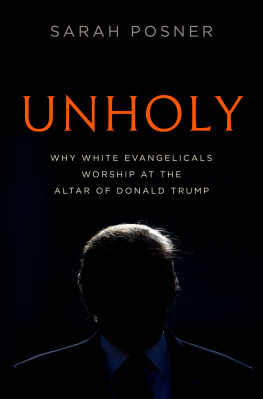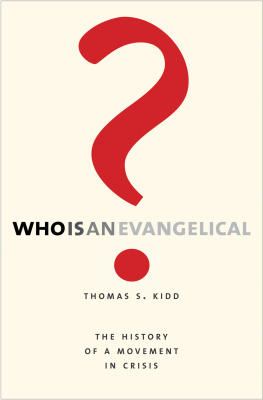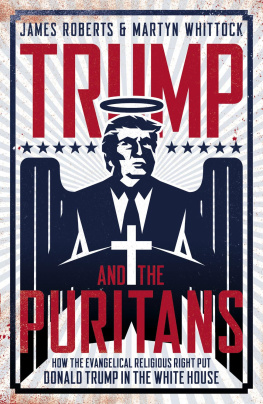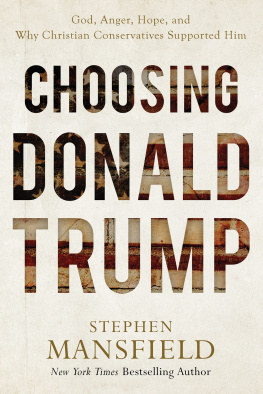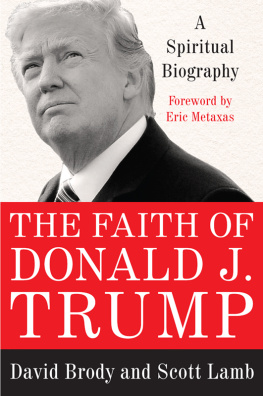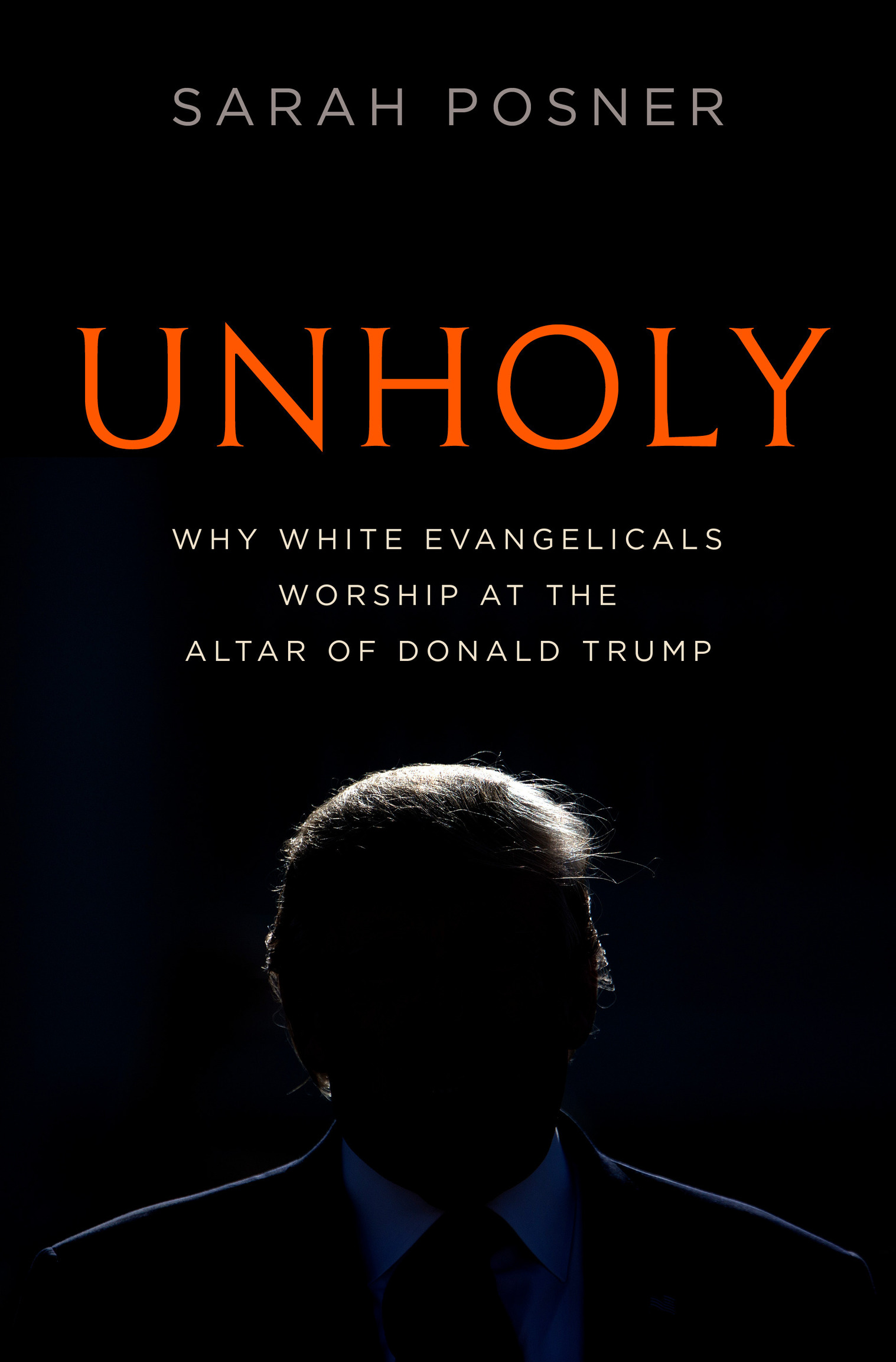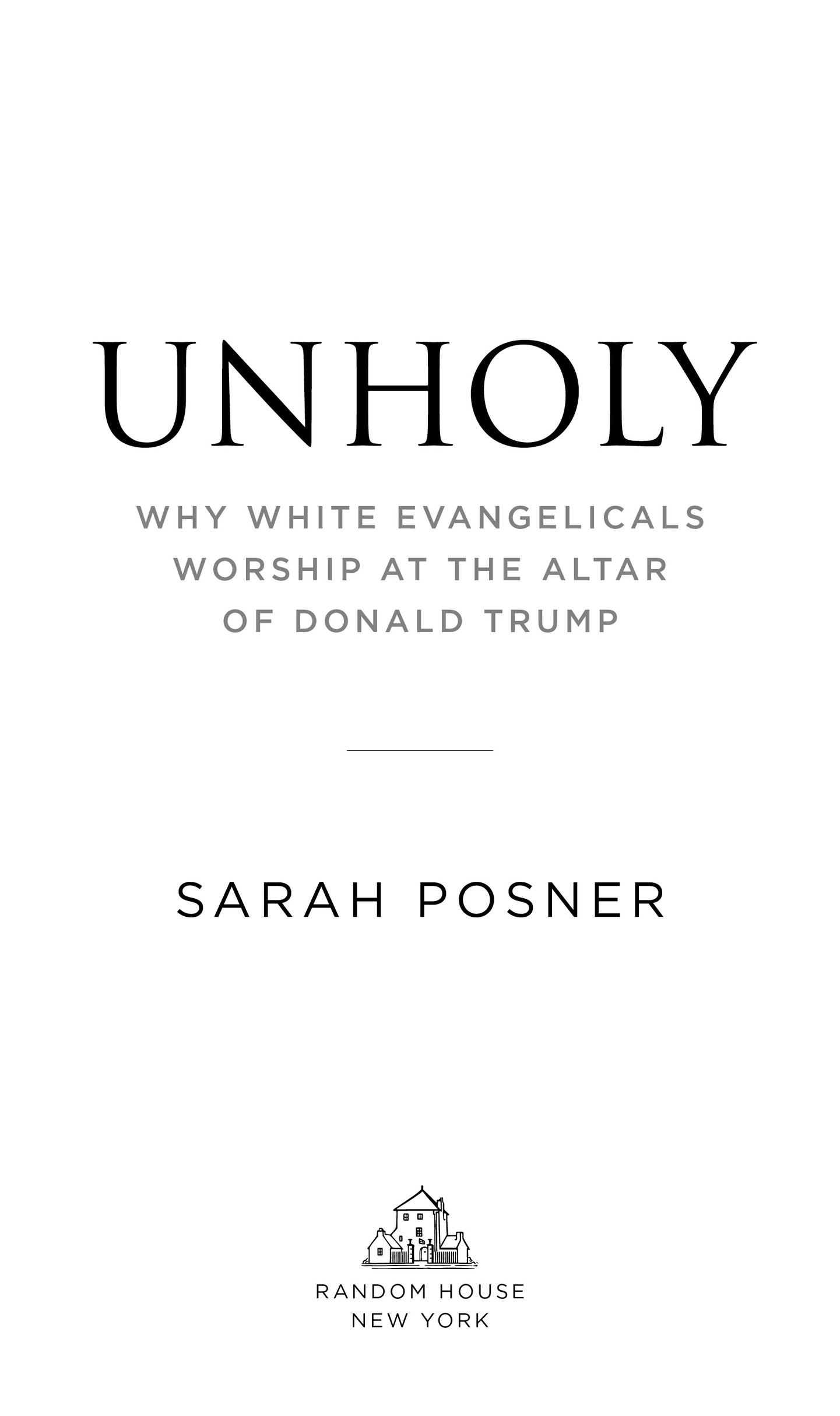Contents
Landmarks
Print Page List
Copyright 2020 by Sarah Posner
All rights reserved.
Published in the United States by Random House, an imprint and division of Penguin Random House LLC, New York.
R ANDOM H OUSE and the H OUSE colophon are registered trademarks of Penguin Random House LLC.
LIBRARY OF CONGRESS CATALOGING-IN-PUBLICATION DATA
Names: Posner, Sarah, author.
Title: Unholy : why white evangelicals worship at the altar of Donald Trump / by Sarah Posner.
Description: New York : Random House, [2020] | Includes bibliographical references and index.
Identifiers: LCCN 2019044820 (print) | LCCN 2019044821 (ebook) | ISBN 9781984820426 (hardcover) | ISBN 9781984820433 (ebook)
Subjects: LCSH: Trump, Donald, 1946 Influence. | Religious rightUnited StatesHistory. | Christianity and politicsUnited States. | ChristiansPolitical activityUnited States. | EvangelicalismPolitical aspectsUnited States. | White supremacy movementsReligious aspectsChristianity. | Political cultureUnited States. | United StatesPolitics and government.
Classification: LCC BR526 .P67 2020 (print) | LCC BR526 (ebook) | DDC 320.520973/090512dc23
LC record available at https://lccn.loc.gov/2019044820
LC ebook record available at https://lccn.loc.gov/2019044821
Ebook ISBN9781984820433
randomhousebooks.com
Book design by Susan Turner, adapted for ebook
Cover design: Anna Bauer Carr
Cover photograph: Eric Thayer/The New York Times/Redux
ep_prh_5.5.0_c0_r0
Contents
We put God right at the center of the White House.
Paula White, speaking at an Evangelicals for Trump campaign event at Solid Rock Church, Cincinnati, Ohio, March 6, 2020
INTRODUCTION
Over the many months of covering the evangelical reaction to the presidential primary candidacy of Donald Trump in 2015 and 2016, I kept looking for the aha momentthe event, utterance, or handshake that might explain the seemingly improbable evangelical attraction to a biblically illiterate libertine. I had covered the Christian right for well over a decade, including the process, in two previous Republican primaries, that movement leaders had engaged in to decide which presidential candidate to bless. I attended countless church services and prayer gatherings, in venues ranging from megachurches to storefronts. I covered Christian conferences, the staples of which were mesmerizing Christian pop music, prophecies, spiritual warfare, and faith healings. I had hands laid on me, watched the casting out of demons, saw money change hands. I heard conspiracy theories about Barack Obama and Hillary Clinton, about secularism and feminism and the gay agenda, about socialist and Muslim fifth columns on the cusp of bringing America to her knees. I heard myriad exhortations to Christians not to abandon politics, indeed to elevate their political engagement, to call their representatives in Washington, to vote. I wrote a book about the prosperity gospel, a quintessentially American theological invention exploited by televangelists to twist the arms of their flocks, teaching that God will bless them with health and riches if they fill their high-flying pastors coffers with their hard-earned cash, even before they pay their rent.
In presidential politics, I covered the rise and fall of Baptist pastor-turned-politician Mike Huckabee in 2008, the tepid evangelical reaction to John McCain winning the Republican nomination that year, and the subsequent elation at his selection of Sarah Palin as his running matethe first Pentecostal on a major party ticket. During the 2012 primaries, I spent days at prayer rallies and church services, the Iowa straw poll, the Iowa caucuses, and the primaries in South Carolina and Florida, where the candidatesmany of whom had deep connections with the Christian rightcompeted to be the most pious, the most saved, the most committed to governing the country from a biblical worldview, as the former congresswoman from Minnesota, Michele Bachmann, would often repeat. In the end, emerging from the pack of seven candidates was the disappointing, flip-flopping Mitt Romney, a member of the Church of Jesus Christ of Latter-Day Saints whom many evangelicals viewed with deep and bigoted suspicion. Robert Jeffress, the Southern Baptist pastor of a Dallas megachurch who went on to become one of Donald Trumps closest evangelical advisers, famously accused Romney of belonging to a cult.
By the time Trump ran for president, I had traveled to seventeen states, listening to campaign speeches, sermons, and theories about the second coming. I had seen everything from the buttoned-up Washington gatherings like the Values Voter Summit to the unbound, euphoric world of biblical prophecy and intercessory prayer. I took the Christian right leaders and voters I had immersed myself with over all those years at their word: in a presidential candidate, they were looking for a fellow Christian who had an unwavering track record of defending and promoting their core issues: opposition to abortion and LGBTQ rights and promotion of their religious liberty.
When Donald Trump announced his candidacy in June 2015, I was deeply skeptical that he would be their man. He did not even try to tell a personal salvation story or display the most rudimentary Bible knowledge. Instead, he was enthralling the alt-right, a once-fringe movement of white supremacists and neo-Nazis that was, alarmingly, finding a foothold in mainstream politics as Trump buoyed them with his cruel nativism and casual racism. But as Trump energized this sordid faction, he simultaneously drew the attention of curious white evangelicals, many of whom also responded to his racist, anti-immigrant, and anti-Muslim rhetoric, cheering it as a brave assault on political correctness. As I watched it unfold and talked to white evangelical leaders and voters on both sides of the Trump Question, one thing became clear: as a Christian, Trump was a work in progress. But God had a plan. Trump was a strong leader, a rich man, a successful real estate mogul. He could fix what was brokenpoliticians, even Republicans, who weakly gave in to the liberal ideas that had ruined Americaand restore Americas true redeemers to their rightful place in American political leadership. Trump might still be a baby Christian in the eyes of some of the evangelical leaders who decided to back him, but he was nonetheless anointed for this time and place.
The aha moment, then, was not something particular Trump said or did but the realization that Trump was the strongman the Christian right had long been waiting for. They had been waiting for a leader unbowed, one who wasnt afraid to attack, head-on, the legal, social, and cultural changes that had unleashed the racist grievances of the American right, beginning with Brown v. Board of Education and persisting through the 1960s and 70s in opposition to school desegregation and government policies to promote itlong before evangelicals made opposing abortion their top issue. Those grievances never went away; the conservative movements right flank perpetually groused that the Republican establishment had too often made concessions to the liberal political order that had stolen away the rights of Christians, of parents, of whites, and of churches, even Americas very foundation as a Christian nation. Because of the feebleness of the Republican establishment, this thinking went, political correctness had made it taboo even to question that liberal order, much less destroy it. Trump might not be able to correctly cite a single Bible verse, but his fearless, impulsive campaign was, after years of spineless establishment Republicans, finally putting political correctness in its place.

